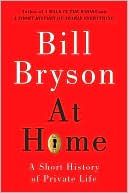Eco-Wars
Can grassroots interest groups ever win the wars they wage in the political arena against big business in America? Praised by some as a crucial component of the democratic system and criticized by others as stubborn, single-issue factions that pose a threat to the equitable progress of political change, interest groups are considered by many detractors to have a success rate directly related to their alliance with wealthy, powerful corporations. As Ronald T. Libby asserts in Eco-Wars, viable...
Search in google:
Can grassroots interest groups ever win the wars they wage against big business in America? Arguing that they can, Libby investigates the strategies used in an antibiotechnology campaign aimed at drug companies; an animal rights effort directed against the agricultural industry; an antipesticide campaign focused on the chemical industry; a property rights fight against environmental groups; and a secondhand smoke campaign opposing tobacco companies. William P. Browne A very usable and balanced book with great adaptability to any course dealing with organized interest politics. Libby argues well that expressive interests can and do check and politically trouble wealthier economic interests. This analysis effectively presents a side of interest politics that too many ignore too often.
List of Figures and TablesPreface1Introduction: Expressive Interest Groups12The Antibiotechnology Campaign: Farmers, Food Safety Groups, and Drug Companies273The Animal Rights Campaign: Agribusiness and Animal Rights Groups534The "Big Green" Campaign: Hollywood and the Chemical Industry895The Secondhand Smoke Campaign: Antismoking Groups and the Philip Morris Company1296The Endangered Species Campaign: Property Rights Advocates and Environmental Groups1697Conclusion207Bibliography219Index241
\ Laura R. WoliverA deft blending of interest group and social movement literature and original scholarship displaying how intersecting both fields informs each in turn. Libby´s five case studies of expressive groups and their countermobilized oppositions display the fragile nature of citizen campaigns, as well as the potential strengths and powers of these impassioned interests. The study furthers our understanding of the privileged position of business, the difficulty of having citizen voices heard as legitimate, and the crucial role of issue framing in political contests.\ \ \ \ \ William P. BrowneA very usable and balanced book with great adaptability to any course dealing with organized interest politics. Libby argues well that expressive interests can and do check and politically trouble wealthier economic interests. This analysis effectively presents a side of interest politics that too many ignore too often.\ \








